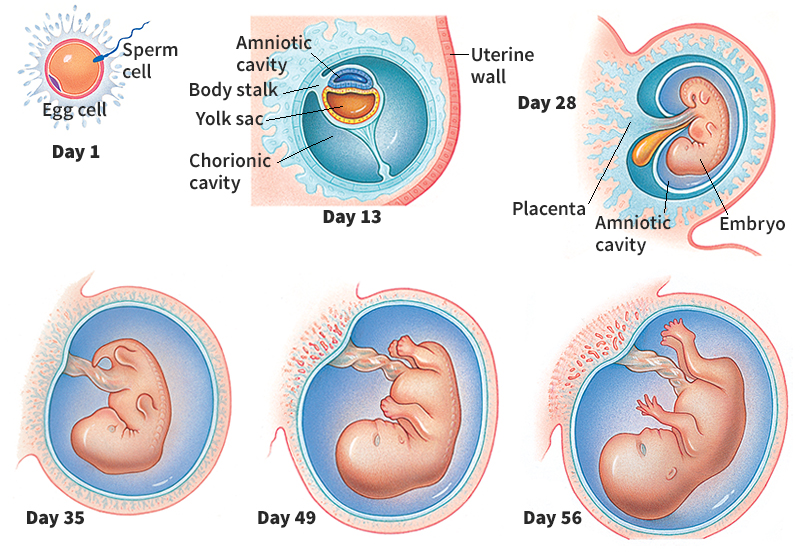Embryo << EHM bree oh >> is an animal or plant in an early stage of its development. The embryo is formed by sexual reproduction when a male sperm cell unites with a female egg cell, or ovum. This union is called fertilization. The fertilized egg, at first called a zygote, goes through a series of divisions that produce many cells. These developing cells, which form specialized structures and grow, are referred to as an embryo.

In flowering plants and conifers, the embryo is the part of the seed from which the mature plant develops. In other plants, such as ferns, the embryo is the mass of cells that develops into a new plant. See Fern; Germination; Seed.
In most fish and amphibians, the female releases many eggs into the water and some of the eggs are fertilized by sperm released at about the same time and place by the male. The embryo then forms and develops outside the female’s body. In birds and most reptiles and insects, the embryo develops within an egg laid by the female. In almost all mammals, the egg is fertilized and the embryo develops inside the female’s body. The human ovum is in an embryonic stage for about two months after fertilization. Thereafter it is called a fetus until birth.
See also Evolutionary developmental biology; Reproduction, Human.
